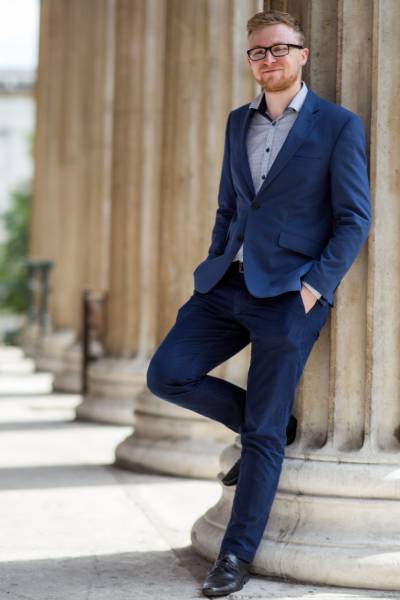Spirit of SLMS Winner (Community Engagement & Citizenship)
Luke is a recent graduate of the UCL Medical School’s MBBS Medicine programme. He is currently working as a doctor in Norfolk, East Anglia.
Tell us a bit about your community achievement.
Being able to raise concerns effectively became something personal to me after I needed to use the raising concerns system during my fourth year of study. This led me to consider what other medical students thought about raising concerns when faced with challenging situations.
We did a questionnaire for medical students and followed this up with several small group discussions to get the best picture possible. Our research helped us to figure out how to better empower students to raise concerns, and we innovated our curriculum to accomplish this.
We added new sessions into year one and five to support the session already in year four and I’ve had opportunities to speak on our work, which has been fantastic.
I have been very lucky along the way to be supported by a number of members of the medical staff team, in particular Faye Gishen, Natahsa Malik and Irene Gafson – all of whom I am very grateful to for having helped channel my enthusiasm and drive this project forward.
What have been some of the great milestones and/or achievements for you during your time at UCL?
Aside from the project, getting through my studies was a real challenge and something I am very proud of! I also really enjoyed intercalating in global health with a great bunch of other students who were excited to think through challenging issues of health and development.
Along the way, I have enjoyed finding ways to adventure including doing the RAG Society’s Jailbreak twice – getting to Warsaw the first time, and Budapest the second.
What role do you think public engagement of science plays in wider society?
As a budding public health doctor, I see science as inextricably linked to wider society. Although crucial, science is not just about good quality, well-directed research. Science needs to be an effective communicator and this communication needs to be two-way. We need to hear the voice of the public and allow that to influence and direct our research. We must then understand how to effectively disseminate evidence widely and accurately in a way which impacts decisions made on an individual and societal level.
The raising concerns project has taught me to not only gather the right evidence of the best quality but also allow this evidence to lead to change. We listened to the stories of people’s struggle to raise concerns and heard what they required to feel more empowered to raise concerns. We then needed to innovate the curriculum to respond to their needs.
Finally, public engagement is ongoing. As scientists, we need to hear how disseminated evidence and implemented changes are received, then to learn again what needs to change.
Top 3 places/things to do in London?
- Going to the quirky, all-you-can-eat “Indian Veg” restaurant in Angel – it’s an absolute bargain and some of the best food in London!
- The free Hare Krishna curry – great food and a fun, social activity for a lunchtime break from studying.
- The Wellcome Collection – always an interesting exhibit, and my favourite bookshop to peruse in London.
What would surprise people about you?
I’ve just acquired a new hobby: wild food foraging – last week I made my own wild garlic pesto and my wife actually enjoyed it!
 Close
Close


